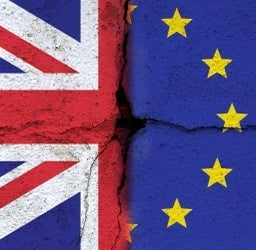The top-line costs alone expose the raw deal we’ve ended up with. The so-called divorce settlement from the Union tops £30 billion, and the loss in goods exports stands at £27 billion. UK food exports are estimated to have decreased by £2.8 billionannually.
Businesses have also been hit terribly. Up to 56% of dairy producers are struggling to find workers (as per an Arla survey). According to the Marine Management Organisation, seafood exports have dropped by 118,000 tonnes in the UK since 2019.
Over 16,000 companies with European customers have simply stopped exporting to the bloc. There’s also been a dramatic spike in immigration, and although 1.2 million EU nationals have left the UK in the wake of Brexit, net migration has soared by 2.3 million.
In fact, Brexit’s biggest promise was to control immigration – but we’ve ended up here. In total, 3.6 million immigrants have entered Britain since the freedom of movement laws were curtailed. Meanwhile, EU students at UK universities have fallen by a third.



Yes, the people can be blamed and that’s exactly the point: legitimacy.
There are issues with direct democracy, though. You just cannot expect regular people to be informed enough to make good decisions on everything. And some things like protecting minorities are especially hard with direct democracy.
Electing representatives through a sort of vibe check, who then consult experts, is actually a pretty good compromise. This principle also has pretty high legitimacy, but just generally makes more informed decisions.